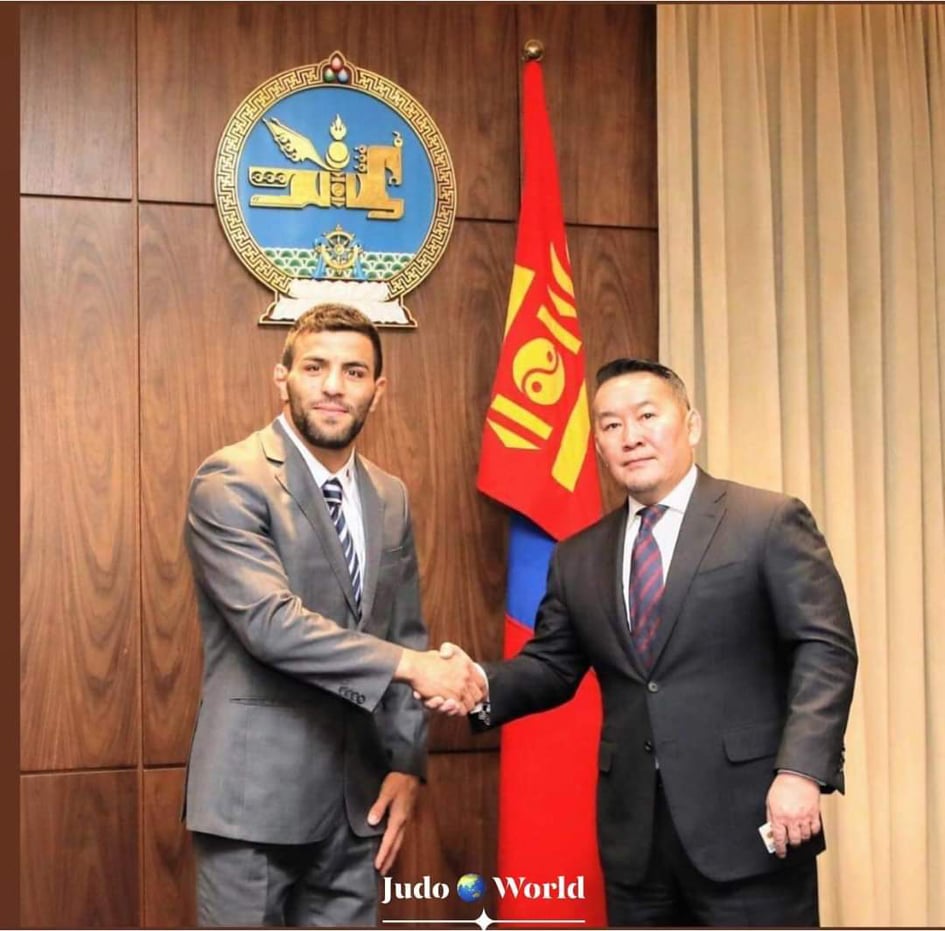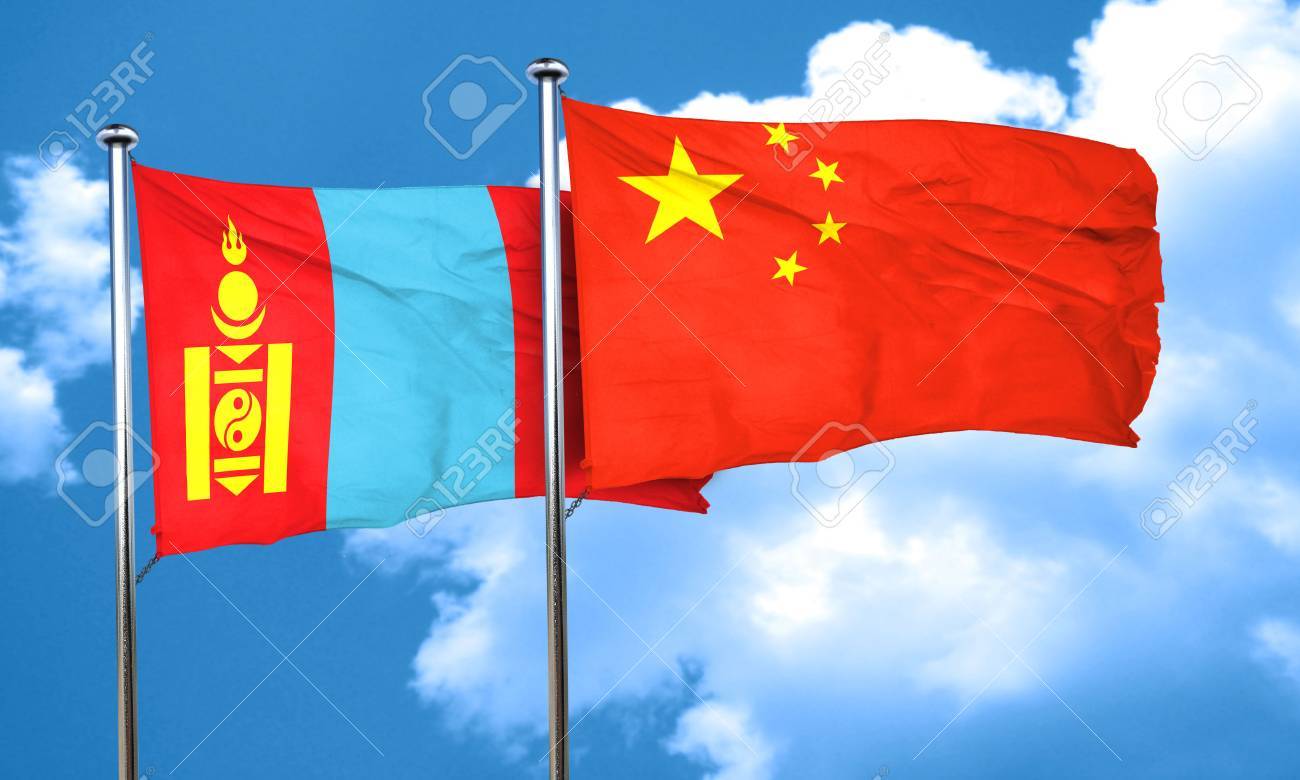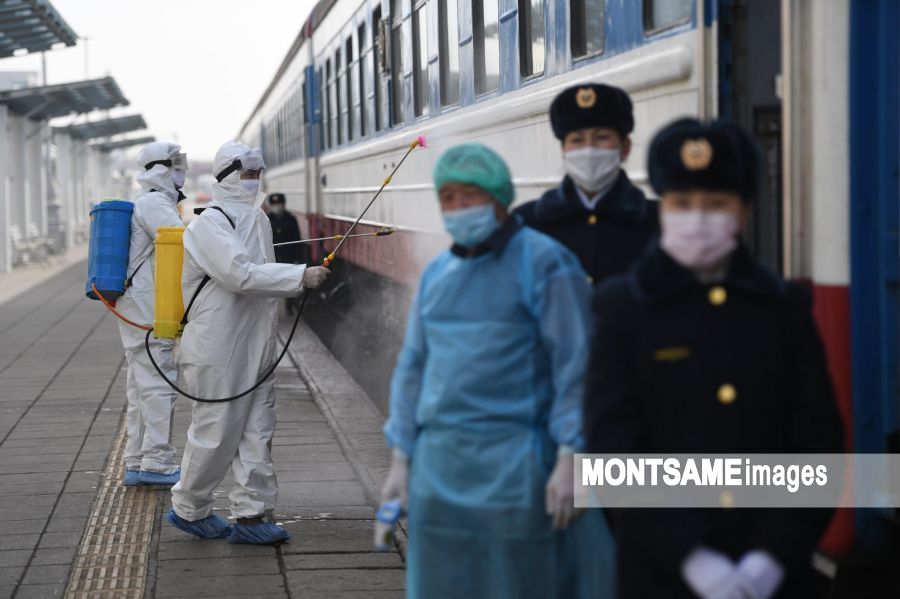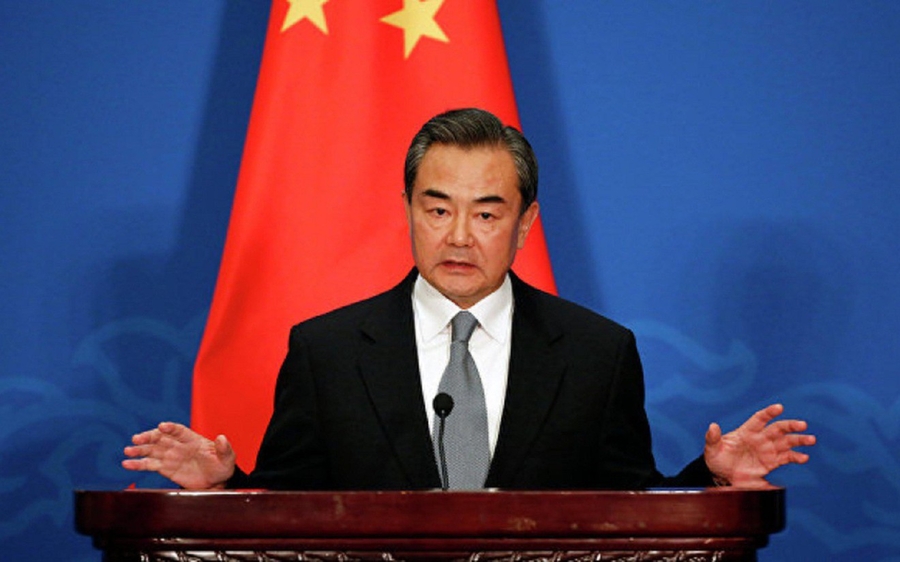Events
| Name | organizer | Where |
|---|---|---|
| MBCC “Doing Business with Mongolia seminar and Christmas Receptiom” Dec 10. 2025 London UK | MBCCI | London UK Goodman LLC |
NEWS

Hungary's Foreign Minister pays working visit to Mongolia www.montsame.mn
On July 29, Minister of Foreign Affairs and Trade of Hungary Péter Szijjártó paid a working visit to Mongolia.
The Hungarian Minister held official talks with Minister of Foreign Affairs of Mongolia B.Battsetseg to discuss about Mongolia-Hungary bilateral relations and cooperation and international issues of mutual concern. The sides also agreed to increase trade, economic and investment volumes between Mongolian and Hungary and support cooperation of private sectors from the two countries.
Mongolia’s Minister Battsetseg emphasized that the education sector is a priority in the bilateral ties and expressed her willingness to develop partnership in cultural, filmmaking and archaeological areas.
Minister Péter Szijjártó informed at the meeting that the Hungarian Export-Import Bank has opened a line of credit as a financing for projects and programs to be carried out by the entities of Mongolia and Hungary. In this regard, a virtual meeting was set to be organized in August 2021 between the chambers of trade and commerce of the two nations.
He then mentioned that Mongolia’s Biokombinat veterinary vaccine factory is being refurbished by USD 57 million investment from Hungary and praised that reciprocal trade volume has been grown by 19 percent amid the pandemic situation.
During the visit, the Hungarian delegates led by Minister Péter Szijjártó paid a courtesy call on Speaker of the State Great Khural of Mongolia G.Zandanshatar and held a bilateral meeting with Minister of Food, Agriculture and Light Industry of Mongolia Z.Mendsaikhan.
Minister Péter Szijjártó also handed over a humanitarian assistance by the government of Hungary to Mongolia – 33 respirators that are essential for Mongolia’s response to COVID-19.

Copper price: After China ban, Australia had no problem finding new concentrate buyers www.mining.com
Copper was an early victim of the increasingly fraught relations between Canberra and Beijing and Chinese imports of concentrate have fallen off a cliff since November last year under a ban that was never made official.
Australia is the fourth-largest producer of copper concentrates globally. The country produced 3.5 million tonnes last year, with just under half of that exported.
Unlike the iron ore market, where the countries’ steel mills and iron ore miners are joined at the hip, Australian concentrate only made up some 5% of Chinese imports. China was Australia’s no. 1 customer, however, and in the past sucked in more than half the country’s exports.
According to a new report by Roskill, a minerals and metals market research firm, total exports of Australian concentrates fell 8% in 2020 (in gross weight terms) as producers scrambled to find new customers in the final months of 2020.
It appears other Asian countries jumped at the chance to pick up China’s slack. While Australia’s concentrate exports to China slumped 89% in the first quarter this year, Japanese and South Korean imports surged by 52% and 192% respectively.
Between them, Japan and Korea purchased 56% of Australian exports of some 400,000 tonnes during Q1 2021, a 3% rise compared to the same quarter a year ago.
Refined exports jump
Treatment and refining charges (TC/RCs) paid by miners to smelters to process concentrate into refined metal rise when supply is ample and fall when smelters are forced to compete for scarce material.
TC/RCs have risen to around $45 a tonne after falling to a historically low level of just over $20 a tonne in April. While that would indicate loosening conditions on the spot market today’s charges still compare to more than $70 a tonne in June last year and spikes as high as $130 in the previous decade.
Roskill says in addition to the change in countries buying Australian concentrates, production of primary refined copper in Q1 2021 increased 20% and exports of refined copper (largely to China and Malaysia) increased 13%.
Copper prices turned higher again on Thursday, scaling $4.50 a pound or $9,920 a tonne in New York trading after falling back from a near two-month high on Monday. In Shanghai, copper was trading at a steep premium to Comex metal at CNY71,510 or around $11,050 a tonne.

Rio Tinto is the lead sponsor of "14th MineClosure2021" International Conference in Ulaanbaatar, Mongolia www.mongolianbusinessdatabase.com
Rio Tinto confirms the premium sponsorship status of "14th MineClosure2021" International Conference to be held in Ulaanbaatar, Mongolia between 17-19 Aug. 2021 according to its socially responsible prestige.
Rio Tinto is the world's second-largest multinational group company on mining and metals founded in 1873 headquarters in London.
Global geoscience technology leader, CGG, and global environmental and advisory solutions provider SLR will be exhibiting their product/services and group delegates from BHP Chile/Australia and participants from Canada, USA, etc have confirmed the registrations.
Visit https://mineclosure2021.com for an agenda of the conference and information in detail.
Contact us via phone: (+976) 99066062, 99119657, Email: mineclosure2021@qmc.mn for inquiries.
The registrations will close on Aug 12. 2021

Freedom-flavoured silver medal for Iranian-born judoka competing for Mongolia www.france24.com
Saeid Mollaei, an Iranian-born judoka now competing for Mongolia, has won the silver medal for his sport at the Tokyo Games. Mollaei left his country and became a naturalised Mongolian citizen after Iran effectively prohibited him from facing an Israeli opponent in 2019.
Saeid Mollaei had dreamt of gold, but still sported a big smile when he was awarded his silver medal on Tuesday at the Tokyo Games. The Iranian-born and naturalised Mongolian judoka was narrowly defeated in the 81kg final by Japan’s star Takanori Nagase, but claimed victory over his own destiny.
Mollaei was world champion in 2018 when he competed for Iran. But during 2019 Judo World Championships held in Tokyo's very same Budokan Hall where the Games are currently taking place, he was ordered by the Iranian Olympic committee to lose in the semi-finals against the Belgian Matthias Casse, to avoid facing Israeli judoka Sagi Muki in the final.
An Iranian embassy employee approached Mollaei in the warm-up hall before the fight and told him security forces were at his parents’ house, according to a Deutsche Welle report.
“You’re supposed to be brave in life. But a thousand questions went through my head. What will happen to me or my family? So I listened to the order,” Mollaei was quoted by DW. He narrowly lost to Casse, and Muki ended up winning the final.
Mollaei subsequently congratulated the Israeli jodoka on his Instagram feed, raising the hackles of Iranian authorities.
‘A new life’
Mollaei left Iran for Germany and fought for the refugee team before becoming a Mongolian national.
In February 2021, he fought in Israel and met Muki, who called him his “brother”.
“I left everything behind me and started a new life,” Mollaei said after his narrow defeat to Nagase in Tokyo.
“I’m with a great team of athletes. The Mongols are nice, very warm and I’m very happy to have won this medal for Mongolia and the Mongol people.”
Muki, with whom Mollaei trained for two months in Israel before the Games, also reacted after the medal. “I’m super happy for Saeid,” he told Israeli reporters at a news conference Tuesday. “I know what he’s gone through, and how much he wanted it. He’s a very close friend of mine, and I’m so happy that he succeeded in achieving his dream. He deserves it — his journey is incredibly inspiring.”
So inspiring, in fact, that MGM/UA Television and Israel’s Tadmor Entertainment are preparing a television series based on the lives of the two world champions, Muki announced on his Instagram account.
Iran does not recognise Israel and its athletes usually refuse to face Israeli opponents, either by forfeiting the match or simply not participating.
One of the most famous cases was current Iranian judo federation president Arash Miresmaeili, a two-time judo world champion who showed up overweight for his bout against an Israeli at the 2004 Olympics in Athens and was disqualified.
During the Tokyo Games, the Algerian judoka Fethi Nourine withdrew in order to avoid facing an Israeli opponent, explaining his decision was due to his support for “the Palestinian cause”. He was first scheduled to face Sudan's Mohamed Abdalrasool on Monday in the first round, before fighting Israeli Tohar Butbul in the next round. He has since been suspended by the International Judo Federation and his accreditation has been withdrawn.
This article was translated and adapted from the original in French.
(FRANCE 24 with AFP)

Judoka Saeid Mollaei: Tokyo a place of destiny www.dw.com
Iranian Saeid Mollaei just wants to be a judoka and an athlete. He’s had to fight a long time for that status and in Tokyo rewarded himself with a silver medal. His story begins and ends in the Budokan.
The Nippon Budokan is known as the spiritual home of Japanese martial arts - especially judo. The sport made its Olympic debut here at the first Tokyo Games in 1964. The octagonal main hall in Kitanomaru Park is modeled after the Horyu-ji temple in Mara and conveys an air of power and tranquility.
For judoka Saeid Mollaei, it is a very special place. "I want to dedicate this medal to myself first and foremost. Then to my family and then to all those who have supported me," the newly crowned Olympic silver medalist told Deutsche Welle at the press conference. The Iranian had fought his way to the final in the 81 kilogram weight category over the course of four bouts, but couldn’t get the better of home favorite Takanori Nagase of Japan.
Why did Mollaei not compete against Israeli athletes?
The Budokan, where some 11,000 spectators were expected to cheer on the judokas during the Olympic Games, is familiar territory for Mallaei. After all, it is where he lost the semifinals at the World Championships as the reigning champion two years ago - a defeat that would change his life.
Mollaei's coach received a call earlier that day from Iran's deputy sports minister with clear instructions: Mollaei was not to advance, he might eventually face an Israeli opponent in Sagi Muki during the competition. For decades, Iran has forbidden its athletes from competing against athletes from Israel because it does not recognize the country as a state. However, Mollaei continued to fight and defeated his next opponent as well.
Then, shortly before the semifinals, a staff member from the Iranian Embassy approached Mollaei in the warm-up hall and told him that security forces were at his parents' house. The judoka secured his passport, took to the mat and narrowly lost to Belgium's Matthias Casse - a final against Muki was averted. "You're supposed to be brave in life. But a thousand questions went through my head. What will happen to me or my family? So I listened to the order," Mollaei later admitted. The world title was won by Israel’s Muki.
Why is Mollaei competing for Mongolia?
On Instagram, Mollaei congratulated his successor. In Israel, he is celebrated for this gesture. "Thank you, Saeid. You are an inspiration as a person and as an athlete," Muki responded. The Ayatollah regime reacted angrily though and, after the World Championships, Mollaei departed for Germany. His dream of Olympic gold thus looked dead, because his home country would never again nominate him for a tournament.
The International Judo Federation (IFJ) supported Mollaei in his goal to compete at the Olympic Games - either in the refugee team or as an athlete of another flag. Mollaei accepted the offer of Mongolian President Chaltmaagiin Battulga to compete for the Central Asian state in the future. Asked about the Tokyo Olympics, Mollaei said, "I will come back and reclaim my right."
Why is the Budokan important to Mollaei?
In February, he traveled to Israel to compete in the Grand Slam tournament. This made him the first athlete from Iran to compete in a tournament hosted in Israel since the 1979 Islamic Revolution.
Although Mollaei now also holds a Mongolian passport, Iranian law states that Iranian citizenship cannot be renounced. For Mollaei, it was nevertheless liberating. "I am very happy. Now I am like any other athlete. I am free, no problems, no politics - just an athlete." He also spent the last two months before the Olympics in Israel, training with world number six Muki, with whom he is now close friends.
Now back in Tokyo, Mollaei’s story comes full circle at the place where it began, the Nippon Budokan. In the semifinal he would have met Muki, but the latter had lost a round earlier. Mollaei made it to the final and went on to win the Olympic silver medal. "I've been through a lot, I can't see my family. But now, after two years of hard work, I'm back here," Mollaei explained when asked by DW. "Because I never really said goodbye to this place."

China, Mongolia oppose politicizing COVID-19 origin tracing, stress further cooperation www.news.cgtn.com
China and Mongolia stressed opposing politicizing the issue of tracing COVID-19 origins and agreed to deepen cooperation in the fields of mining, energy, finance, agriculture, husbandry and infrastructure construction, and innovate new forms and contents of people-to-people exchanges.
The consensus was reached during a meeting between Chinese State Councilor and Foreign Minister Wang Yi and the visiting Mongolian Foreign Minister Batmunkh Battsetseg in north China's Tianjin Municipality on Tuesday.
Anti-epidemic cooperation
Wang said China and Mongolia have supported and helped each other since the outbreak of COVID-19, writing a new chapter of bilateral friendship, and China is ready to continue providing Mongolia with necessary help in fighting the epidemic.
Moreover, the two sides welcomed the WHO-China joint report on the global tracing of COVID-19 origins, stressing that origin tracing is scientific work and should not be politicized. They also called on the WHO Secretariat to cooperate with member states in accordance with relevant resolutions of the World Health Assembly to promote global origin tracing research.
Following the talks, the two foreign ministers jointly met the press and issued a statement on further strengthening anti-epidemic cooperation.
Comprehensive strategic partnership
To upgrade bilateral practical cooperation, the two sides agreed to further align the Belt and Road Initiative with the Grassland Road initiative of Mongolia and strive to achieve the bilateral trade target of $10 billion at an early date.
In terms of strengthening cooperation within multilateral frameworks such as the United Nations, they vowed to jointly oppose unilateralism, support multilateralism, oppose separatism and confrontation, and support win-win cooperation, to build a community with a shared future for mankind.
China also invited Mongolian leaders to attend the 2021 Taiyuan Energy Low Carbon Development Forum online, and welcomed Prime Minister Oyun Erden and Gombojav Zandanshatar, parliamentary speaker, to visit China at an appropriate time.
Battsetseg expressed the willingness to work with China to enrich the comprehensive strategic partnership between the two countries.
Mongolia will not participate in any country-specific mechanism, she said.
Noting that Tibet is an inalienable part of China's territory, the Mongolian foreign minister stressed that Tibet-related issues are China's internal affairs and Mongolia will not let the Tibet-related issues interfere with the development of bilateral relations.
Mongolia supports the 2022 Beijing Winter Olympics and wishes the sports event a complete success, she said.
She also said Mongolia is willing to work with China to advance Mongolia-China-Russia trilateral cooperation.

Mongolia records 1,234 new COVID-19 cases, seven deaths www.montsame.mn
Daily COVID-19 press briefing for today, July 28, by the Ministry of Health reported that 1,234 new coronavirus cases were detected in the past 24 hours after tests were carried out at PCR laboratories across the country.
In specific, 511 new cases were confirmed in Ulaanbaatar city, and 732 cases were detected in rural regions.
As a result, the nationwide infection tally is now 160,344. In the last 24 hours, 2,100 coronavirus patients were recovered and discharged from hospital.
The Ministry also reported seven new COVID-19 related deaths, raising the country's death toll to 796.

Percentage of fully vaccinated population stands at 60.1 percent www.montsame.mn
As a result of the quick action taken by the Government of Mongolia, 60.1 percent of the total population or 1,956,183 people have been fully vaccinated as of today on July 28.
66.2 percent or 2,155,040 people have been administered with the first dose of COVID-19 vaccines, reported the Ministry of Health.
With Maldives currently leading the global vaccination initiative during this time where COVID-19 vaccine supply continues to be an issue for some countries, Mongolia is currently placed 13th for its percentage of fully vaccinated population.

Hungary's Foreign Minister to visit Mongolia www.montsame.mn
Minister of Foreign Affairs and Trade of Hungary Péter Szijjártó will pay a working visit to Mongolia on July 29, Thursday, according to the Ministry of Foreign Affairs of Mongolia.
During the visit, medical equipment provided by the government of Hungary as humanitarian assistance to Mongolia will be handed over.
Minister of Foreign Affairs of Mongolia B.Battsetseg will receive Hungarian delegates headed by Minister Péter Szijjártó. Moreover, the Hungarian Minister will pay a courtesy call on Speaker of the State Great Khural of Mongolia G.Zandanshatar and will hold bilateral meetings with Ministers of Food, Agriculture and Light Industry and Justice and Internal Affairs of Mongolia.

Foreign Ministers of Mongolia and China hold official talks www.montsame.mn
Minister of Foreign Affairs of Mongolia B.Battsetseg, during her visit to the People's Republic of China on July 27, held official talks with State Councilor and Foreign Minister of the People's Republic of China Wang Yi in Tianjin city. The official talks touched on a wide range of issues on Mongolia-China bilateral relations and regional and international cooperation.
Agreeing that political mutual understanding and strengthening of trust enable further growth of cooperation in all possible fields, the two foreign ministers highlighted that the heads of the two states as well as the parliamentarian and government authorities have agreed on many important issues to develop the bilateral ties during their telephone conversations.
Ministers Battsetseg and Wang Yi also agreed to carry out the visits by Speaker of Mongolia’s State Great Khural and Prime Minister as soon as the pandemic subsides and organize the meetings for inter-parliamentarian regular mechanism talks and inter-foreign ministry strategic mechanism in proper formats. The meeting also emphasized the active partnership being maintained by the two countries amid the challenging situation posed by COVID-19 as an example of efforts against the pandemic.
The ministers agreed to boost their cooperation against the COVID-19 pandemic, issuing a joint statement on strengthening cooperation to fight against the pandemic. The joint statement sets out to take measures against the pandemic, move up the efforts to restore the economic and trade cooperation and increase trade turnover and freight transportation volume by fully utilizing the green channel regime established at the Mongolia-China border checkpoints.
The sides further affirmed to intensify the strives to implement their development policies, bring about large scale projects and programs in various fields, such as minerals, energy, agriculture, infrastructure and environment and increase trade turnover to USD 10 billion in the near future.
Both ministers pledged to cooperate in increasing traffic flows at bordering checkpoints Zamiin-Uud-Erlian, Gashuunsukhait-Gantsmod and Shiveekhuren-Sekhee with the help of measures against the coronavirus infections, establishing long-term coal purchase contract under commercial terms, increasing Mongolia’s coal exports to China through introducing new types of transportation and expanding Mongolia’s agricultural exports and speed up meat exports from Mongolia’s western region. A regular meeting of the Mongolia-China joint council on mineral resources, energy and infrastructure cooperation was scheduled in the third quarter of this year.
Ministers Battsetseg and Wang Yi then concurred that corresponding organizations from the two countries will pay attention on accelerating the projects underway in Mongolia with China’s soft loan and grants and tackling any challenges caused by the pandemic situation.
During the meeting, the sides also agreed collaborate on projects aimed at tackling desertification and dust storms as discussed by the presidents of Mongolia and China earlier this month in their telephone conversation and expressed their eagerness to keep cultural, education and humanitarian partnership normal amid the pandemic circumstances.
Confirming that both Mongolia and China attach great importance to the development of trilateral cooperation of Mongolia, Russia and China, the sides vowed to provide support to entities from the three countries in order to bring forward the building of trilateral economic corridor and the development of feasibility study for the Russia-China gas pipeline to transit through Mongolia.
During the official talks, the Mongolian and Chinese ministers exchanged views on regional and international matters of mutual concern as well and pledged to continue their close and friendly relations.
- «
- 1
- 2
- 3
- 4
- 5
- 6
- 7
- 8
- 9
- 10
- 11
- 12
- 13
- 14
- 15
- 16
- 17
- 18
- 19
- 20
- 21
- 22
- 23
- 24
- 25
- 26
- 27
- 28
- 29
- 30
- 31
- 32
- 33
- 34
- 35
- 36
- 37
- 38
- 39
- 40
- 41
- 42
- 43
- 44
- 45
- 46
- 47
- 48
- 49
- 50
- 51
- 52
- 53
- 54
- 55
- 56
- 57
- 58
- 59
- 60
- 61
- 62
- 63
- 64
- 65
- 66
- 67
- 68
- 69
- 70
- 71
- 72
- 73
- 74
- 75
- 76
- 77
- 78
- 79
- 80
- 81
- 82
- 83
- 84
- 85
- 86
- 87
- 88
- 89
- 90
- 91
- 92
- 93
- 94
- 95
- 96
- 97
- 98
- 99
- 100
- 101
- 102
- 103
- 104
- 105
- 106
- 107
- 108
- 109
- 110
- 111
- 112
- 113
- 114
- 115
- 116
- 117
- 118
- 119
- 120
- 121
- 122
- 123
- 124
- 125
- 126
- 127
- 128
- 129
- 130
- 131
- 132
- 133
- 134
- 135
- 136
- 137
- 138
- 139
- 140
- 141
- 142
- 143
- 144
- 145
- 146
- 147
- 148
- 149
- 150
- 151
- 152
- 153
- 154
- 155
- 156
- 157
- 158
- 159
- 160
- 161
- 162
- 163
- 164
- 165
- 166
- 167
- 168
- 169
- 170
- 171
- 172
- 173
- 174
- 175
- 176
- 177
- 178
- 179
- 180
- 181
- 182
- 183
- 184
- 185
- 186
- 187
- 188
- 189
- 190
- 191
- 192
- 193
- 194
- 195
- 196
- 197
- 198
- 199
- 200
- 201
- 202
- 203
- 204
- 205
- 206
- 207
- 208
- 209
- 210
- 211
- 212
- 213
- 214
- 215
- 216
- 217
- 218
- 219
- 220
- 221
- 222
- 223
- 224
- 225
- 226
- 227
- 228
- 229
- 230
- 231
- 232
- 233
- 234
- 235
- 236
- 237
- 238
- 239
- 240
- 241
- 242
- 243
- 244
- 245
- 246
- 247
- 248
- 249
- 250
- 251
- 252
- 253
- 254
- 255
- 256
- 257
- 258
- 259
- 260
- 261
- 262
- 263
- 264
- 265
- 266
- 267
- 268
- 269
- 270
- 271
- 272
- 273
- 274
- 275
- 276
- 277
- 278
- 279
- 280
- 281
- 282
- 283
- 284
- 285
- 286
- 287
- 288
- 289
- 290
- 291
- 292
- 293
- 294
- 295
- 296
- 297
- 298
- 299
- 300
- 301
- 302
- 303
- 304
- 305
- 306
- 307
- 308
- 309
- 310
- 311
- 312
- 313
- 314
- 315
- 316
- 317
- 318
- 319
- 320
- 321
- 322
- 323
- 324
- 325
- 326
- 327
- 328
- 329
- 330
- 331
- 332
- 333
- 334
- 335
- 336
- 337
- 338
- 339
- 340
- 341
- 342
- 343
- 344
- 345
- 346
- 347
- 348
- 349
- 350
- 351
- 352
- 353
- 354
- 355
- 356
- 357
- 358
- 359
- 360
- 361
- 362
- 363
- 364
- 365
- 366
- 367
- 368
- 369
- 370
- 371
- 372
- 373
- 374
- 375
- 376
- 377
- 378
- 379
- 380
- 381
- 382
- 383
- 384
- 385
- 386
- 387
- 388
- 389
- 390
- 391
- 392
- 393
- 394
- 395
- 396
- 397
- 398
- 399
- 400
- 401
- 402
- 403
- 404
- 405
- 406
- 407
- 408
- 409
- 410
- 411
- 412
- 413
- 414
- 415
- 416
- 417
- 418
- 419
- 420
- 421
- 422
- 423
- 424
- 425
- 426
- 427
- 428
- 429
- 430
- 431
- 432
- 433
- 434
- 435
- 436
- 437
- 438
- 439
- 440
- 441
- 442
- 443
- 444
- 445
- 446
- 447
- 448
- 449
- 450
- 451
- 452
- 453
- 454
- 455
- 456
- 457
- 458
- 459
- 460
- 461
- 462
- 463
- 464
- 465
- 466
- 467
- 468
- 469
- 470
- 471
- 472
- 473
- 474
- 475
- 476
- 477
- 478
- 479
- 480
- 481
- 482
- 483
- 484
- 485
- 486
- 487
- 488
- 489
- 490
- 491
- 492
- 493
- 494
- 495
- 496
- 497
- 498
- 499
- 500
- 501
- 502
- 503
- 504
- 505
- 506
- 507
- 508
- 509
- 510
- 511
- 512
- 513
- 514
- 515
- 516
- 517
- 518
- 519
- 520
- 521
- 522
- 523
- 524
- 525
- 526
- 527
- 528
- 529
- 530
- 531
- 532
- 533
- 534
- 535
- 536
- 537
- 538
- 539
- 540
- 541
- 542
- 543
- 544
- 545
- 546
- 547
- 548
- 549
- 550
- 551
- 552
- 553
- 554
- 555
- 556
- 557
- 558
- 559
- 560
- 561
- 562
- 563
- 564
- 565
- 566
- 567
- 568
- 569
- 570
- 571
- 572
- 573
- 574
- 575
- 576
- 577
- 578
- 579
- 580
- 581
- 582
- 583
- 584
- 585
- 586
- 587
- 588
- 589
- 590
- 591
- 592
- 593
- 594
- 595
- 596
- 597
- 598
- 599
- 600
- 601
- 602
- 603
- 604
- 605
- 606
- 607
- 608
- 609
- 610
- 611
- 612
- 613
- 614
- 615
- 616
- 617
- 618
- 619
- 620
- 621
- 622
- 623
- 624
- 625
- 626
- 627
- 628
- 629
- 630
- 631
- 632
- 633
- 634
- 635
- 636
- 637
- 638
- 639
- 640
- 641
- 642
- 643
- 644
- 645
- 646
- 647
- 648
- 649
- 650
- 651
- 652
- 653
- 654
- 655
- 656
- 657
- 658
- 659
- 660
- 661
- 662
- 663
- 664
- 665
- 666
- 667
- 668
- 669
- 670
- 671
- 672
- 673
- 674
- 675
- 676
- 677
- 678
- 679
- 680
- 681
- 682
- 683
- 684
- 685
- 686
- 687
- 688
- 689
- 690
- 691
- 692
- 693
- 694
- 695
- 696
- 697
- 698
- 699
- 700
- 701
- 702
- 703
- 704
- 705
- 706
- 707
- 708
- 709
- 710
- 711
- 712
- 713
- 714
- 715
- 716
- 717
- 718
- 719
- 720
- 721
- 722
- 723
- 724
- 725
- 726
- 727
- 728
- 729
- 730
- 731
- 732
- 733
- 734
- 735
- 736
- 737
- 738
- 739
- 740
- 741
- 742
- 743
- 744
- 745
- 746
- 747
- 748
- 749
- 750
- 751
- 752
- 753
- 754
- 755
- 756
- 757
- 758
- 759
- 760
- 761
- 762
- 763
- 764
- 765
- 766
- 767
- 768
- 769
- 770
- 771
- 772
- 773
- 774
- 775
- 776
- 777
- 778
- 779
- 780
- 781
- 782
- 783
- 784
- 785
- 786
- 787
- 788
- 789
- 790
- 791
- 792
- 793
- 794
- 795
- 796
- 797
- 798
- 799
- 800
- 801
- 802
- 803
- 804
- 805
- 806
- 807
- 808
- 809
- 810
- 811
- 812
- 813
- 814
- 815
- 816
- 817
- 818
- 819
- 820
- 821
- 822
- 823
- 824
- 825
- 826
- 827
- 828
- 829
- 830
- 831
- 832
- 833
- 834
- 835
- 836
- 837
- 838
- 839
- 840
- 841
- 842
- 843
- 844
- 845
- 846
- 847
- 848
- 849
- 850
- 851
- 852
- 853
- 854
- 855
- 856
- 857
- 858
- 859
- 860
- 861
- 862
- 863
- 864
- 865
- 866
- 867
- 868
- 869
- 870
- 871
- 872
- 873
- 874
- 875
- 876
- 877
- 878
- 879
- 880
- 881
- 882
- 883
- 884
- 885
- 886
- 887
- 888
- 889
- 890
- 891
- 892
- 893
- 894
- 895
- 896
- 897
- 898
- 899
- 900
- 901
- 902
- 903
- 904
- 905
- 906
- 907
- 908
- 909
- 910
- 911
- 912
- 913
- 914
- 915
- 916
- 917
- 918
- 919
- 920
- 921
- 922
- 923
- 924
- 925
- 926
- 927
- 928
- 929
- 930
- 931
- 932
- 933
- 934
- 935
- 936
- 937
- 938
- 939
- 940
- 941
- 942
- 943
- 944
- 945
- 946
- 947
- 948
- 949
- 950
- 951
- 952
- 953
- 954
- 955
- 956
- 957
- 958
- 959
- 960
- 961
- 962
- 963
- 964
- 965
- 966
- 967
- 968
- 969
- 970
- 971
- 972
- 973
- 974
- 975
- 976
- 977
- 978
- 979
- 980
- 981
- 982
- 983
- 984
- 985
- 986
- 987
- 988
- 989
- 990
- 991
- 992
- 993
- 994
- 995
- 996
- 997
- 998
- 999
- 1000
- 1001
- 1002
- 1003
- 1004
- 1005
- 1006
- 1007
- 1008
- 1009
- 1010
- 1011
- 1012
- 1013
- 1014
- 1015
- 1016
- 1017
- 1018
- 1019
- 1020
- 1021
- 1022
- 1023
- 1024
- 1025
- 1026
- 1027
- 1028
- 1029
- 1030
- 1031
- 1032
- 1033
- 1034
- 1035
- 1036
- 1037
- 1038
- 1039
- 1040
- 1041
- 1042
- 1043
- 1044
- 1045
- 1046
- 1047
- 1048
- 1049
- 1050
- 1051
- 1052
- 1053
- 1054
- 1055
- 1056
- 1057
- 1058
- 1059
- 1060
- 1061
- 1062
- 1063
- 1064
- 1065
- 1066
- 1067
- 1068
- 1069
- 1070
- 1071
- 1072
- 1073
- 1074
- 1075
- 1076
- 1077
- 1078
- 1079
- 1080
- 1081
- 1082
- 1083
- 1084
- 1085
- 1086
- 1087
- 1088
- 1089
- 1090
- 1091
- 1092
- 1093
- 1094
- 1095
- 1096
- 1097
- 1098
- 1099
- 1100
- 1101
- 1102
- 1103
- 1104
- 1105
- 1106
- 1107
- 1108
- 1109
- 1110
- 1111
- 1112
- 1113
- 1114
- 1115
- 1116
- 1117
- 1118
- 1119
- 1120
- 1121
- 1122
- 1123
- 1124
- 1125
- 1126
- 1127
- 1128
- 1129
- 1130
- 1131
- 1132
- 1133
- 1134
- 1135
- 1136
- 1137
- 1138
- 1139
- 1140
- 1141
- 1142
- 1143
- 1144
- 1145
- 1146
- 1147
- 1148
- 1149
- 1150
- 1151
- 1152
- 1153
- 1154
- 1155
- 1156
- 1157
- 1158
- 1159
- 1160
- 1161
- 1162
- 1163
- 1164
- 1165
- 1166
- 1167
- 1168
- 1169
- 1170
- 1171
- 1172
- 1173
- 1174
- 1175
- 1176
- 1177
- 1178
- 1179
- 1180
- 1181
- 1182
- 1183
- 1184
- 1185
- 1186
- 1187
- 1188
- 1189
- 1190
- 1191
- 1192
- 1193
- 1194
- 1195
- 1196
- 1197
- 1198
- 1199
- 1200
- 1201
- 1202
- 1203
- 1204
- 1205
- 1206
- 1207
- 1208
- 1209
- 1210
- 1211
- 1212
- 1213
- 1214
- 1215
- 1216
- 1217
- 1218
- 1219
- 1220
- 1221
- 1222
- 1223
- 1224
- 1225
- 1226
- 1227
- 1228
- 1229
- 1230
- 1231
- 1232
- 1233
- 1234
- 1235
- 1236
- 1237
- 1238
- 1239
- 1240
- 1241
- 1242
- 1243
- 1244
- 1245
- 1246
- 1247
- 1248
- 1249
- 1250
- 1251
- 1252
- 1253
- 1254
- 1255
- 1256
- 1257
- 1258
- 1259
- 1260
- 1261
- 1262
- 1263
- 1264
- 1265
- 1266
- 1267
- 1268
- 1269
- 1270
- 1271
- 1272
- 1273
- 1274
- 1275
- 1276
- 1277
- 1278
- 1279
- 1280
- 1281
- 1282
- 1283
- 1284
- 1285
- 1286
- 1287
- 1288
- 1289
- 1290
- 1291
- 1292
- 1293
- 1294
- 1295
- 1296
- 1297
- 1298
- 1299
- 1300
- 1301
- 1302
- 1303
- 1304
- 1305
- 1306
- 1307
- 1308
- 1309
- 1310
- 1311
- 1312
- 1313
- 1314
- 1315
- 1316
- 1317
- 1318
- 1319
- 1320
- 1321
- 1322
- 1323
- 1324
- 1325
- 1326
- 1327
- 1328
- 1329
- 1330
- 1331
- 1332
- 1333
- 1334
- 1335
- 1336
- 1337
- 1338
- 1339
- 1340
- 1341
- 1342
- 1343
- 1344
- 1345
- 1346
- 1347
- 1348
- 1349
- 1350
- 1351
- 1352
- 1353
- 1354
- 1355
- 1356
- 1357
- 1358
- 1359
- 1360
- 1361
- 1362
- 1363
- 1364
- 1365
- 1366
- 1367
- 1368
- 1369
- 1370
- 1371
- 1372
- 1373
- 1374
- 1375
- 1376
- 1377
- 1378
- 1379
- 1380
- 1381
- 1382
- 1383
- 1384
- 1385
- 1386
- 1387
- 1388
- 1389
- 1390
- 1391
- 1392
- 1393
- 1394
- 1395
- 1396
- 1397
- 1398
- 1399
- 1400
- 1401
- 1402
- 1403
- 1404
- 1405
- 1406
- 1407
- 1408
- 1409
- 1410
- 1411
- 1412
- 1413
- 1414
- 1415
- 1416
- 1417
- 1418
- 1419
- 1420
- 1421
- 1422
- 1423
- 1424
- 1425
- 1426
- 1427
- 1428
- 1429
- 1430
- 1431
- 1432
- 1433
- 1434
- 1435
- 1436
- 1437
- 1438
- 1439
- 1440
- 1441
- 1442
- 1443
- 1444
- 1445
- 1446
- 1447
- 1448
- 1449
- 1450
- 1451
- 1452
- 1453
- 1454
- 1455
- 1456
- 1457
- 1458
- 1459
- 1460
- 1461
- 1462
- 1463
- 1464
- 1465
- 1466
- 1467
- 1468
- 1469
- 1470
- 1471
- 1472
- 1473
- 1474
- 1475
- 1476
- 1477
- 1478
- 1479
- 1480
- 1481
- 1482
- 1483
- 1484
- 1485
- 1486
- 1487
- 1488
- 1489
- 1490
- 1491
- 1492
- 1493
- 1494
- 1495
- 1496
- 1497
- 1498
- 1499
- 1500
- 1501
- 1502
- 1503
- 1504
- 1505
- 1506
- 1507
- 1508
- 1509
- 1510
- 1511
- 1512
- 1513
- 1514
- 1515
- 1516
- 1517
- 1518
- 1519
- 1520
- 1521
- 1522
- 1523
- 1524
- 1525
- 1526
- 1527
- 1528
- 1529
- 1530
- 1531
- 1532
- 1533
- 1534
- 1535
- 1536
- 1537
- 1538
- 1539
- 1540
- 1541
- 1542
- 1543
- 1544
- 1545
- 1546
- 1547
- 1548
- 1549
- 1550
- 1551
- 1552
- 1553
- 1554
- 1555
- 1556
- 1557
- 1558
- 1559
- 1560
- 1561
- 1562
- 1563
- 1564
- 1565
- 1566
- 1567
- 1568
- 1569
- 1570
- 1571
- 1572
- 1573
- 1574
- 1575
- 1576
- 1577
- 1578
- 1579
- 1580
- 1581
- 1582
- 1583
- 1584
- 1585
- 1586
- 1587
- 1588
- 1589
- 1590
- 1591
- 1592
- 1593
- 1594
- 1595
- 1596
- 1597
- 1598
- 1599
- 1600
- 1601
- 1602
- 1603
- 1604
- 1605
- 1606
- 1607
- 1608
- 1609
- 1610
- 1611
- 1612
- 1613
- 1614
- 1615
- 1616
- 1617
- 1618
- 1619
- 1620
- 1621
- 1622
- 1623
- 1624
- 1625
- 1626
- 1627
- 1628
- 1629
- 1630
- 1631
- 1632
- 1633
- 1634
- 1635
- 1636
- 1637
- 1638
- 1639
- 1640
- 1641
- 1642
- 1643
- 1644
- 1645
- 1646
- 1647
- 1648
- 1649
- 1650
- 1651
- 1652
- 1653
- 1654
- 1655
- 1656
- 1657
- 1658
- 1659
- 1660
- 1661
- 1662
- 1663
- 1664
- 1665
- 1666
- 1667
- 1668
- 1669
- 1670
- 1671
- 1672
- 1673
- 1674
- 1675
- 1676
- 1677
- 1678
- 1679
- 1680
- 1681
- 1682
- 1683
- 1684
- 1685
- 1686
- 1687
- 1688
- 1689
- 1690
- 1691
- 1692
- 1693
- 1694
- 1695
- 1696
- 1697
- 1698
- 1699
- 1700
- 1701
- 1702
- 1703
- 1704
- 1705
- 1706
- 1707
- 1708
- 1709
- 1710
- 1711
- 1712
- 1713
- 1714
- »






